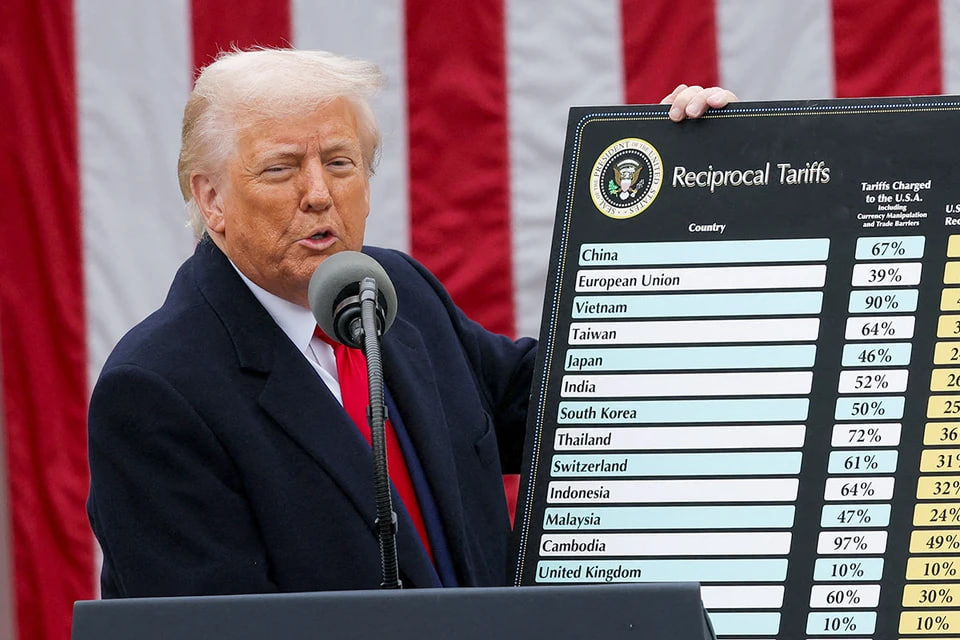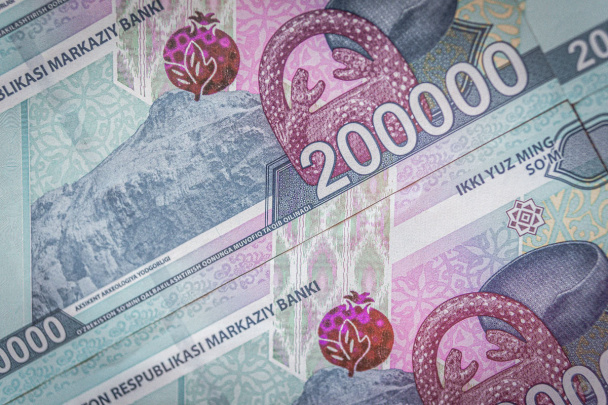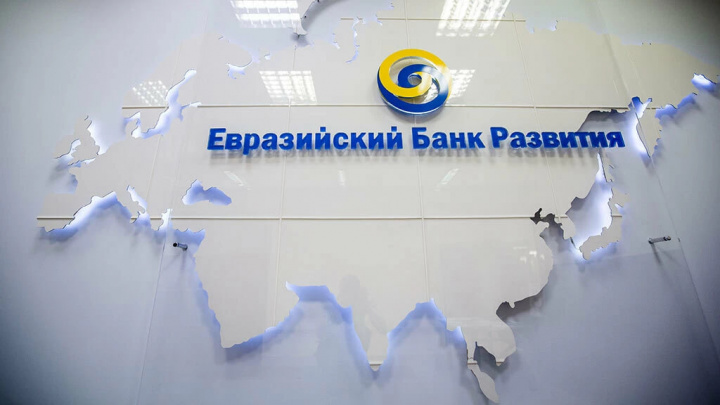Uzbekistan may feel secondary effects of Trump’s global tariff policy
The new 10% tariff introduced by the United States may have little direct impact on most of Uzbekistan’s exports to the country. According to economist Mirkomil Kholboyev, 86% of Uzbekistan’s exports to the U.S. last year were in the form of services, which are not subject to tariffs. However, the secondary effects of the new trade policy may still be felt.

Photo: REUTERS
U.S. President Donald Trump has announced the introduction of "reciprocal tariffs" for all countries, with a 10% tariff set for Uzbekistan. Economist Mirkomil Kholboyev has analyzed how these new tariffs might impact Uzbekistan.
“In 2024, Uzbekistan's trade turnover with the United States reached $882 million, which represents a 15.2% increase compared to 2023. Of this, exports to the U.S. amounted to $314.7 million, while imports totaled $564.3 million. Exports to the U.S. account for just 1.2% of Uzbekistan’s total exports,” said Kholboyev.
Furthermore, the bulk of these exports consists of services. In 2024, goods exports to the U.S. totaled just $44.4 million — meaning that 86% of Uzbekistan’s exports to the U.S. are services, which are not subject to tariffs. In other words, 86% of Uzbekistan’s exports to the U.S. fall outside the scope of the newly announced tariffs. Only the remaining 14% will be affected.
The main goods exported to the U.S. include unspecified items (customs code 9999) worth $7.9 million, precious metals (code 7112) worth $6.6 million, and aluminum, also worth $6.6 million.
Overall, the direct impact of these tariffs on Uzbekistan is expected to be minimal. First, the U.S. is not one of Uzbekistan’s major trading partners. Second, the new tariffs do not affect most of the country’s export goods.
However, since the tariffs apply to nearly every country, their indirect effects are unlikely to be avoided in the near future. The U.S. tariff policy could lead to a slowdown in global economic growth, including in countries that are key trade partners of Uzbekistan. A slowdown in global growth would naturally reduce demand for goods.
This may further accelerate the already-declining export volumes to partners like China, Turkey, Kyrgyzstan, and Tajikistan, or delay any potential recovery in those markets.
On the upside, during times of uncertainty, the price of gold — Uzbekistan’s key export — is expected to reach new historic highs. In this case, a decline in other exports may be offset by increased revenues from gold exports.
Moreover, as the U.S. is a major global economy, the newly imposed tariffs may cause a general decline in global commodity prices. This could make imports cheaper for Uzbekistan. On one hand, this creates favorable conditions for monetary policy, particularly in managing inflation. On the other hand, it may introduce unexpected competition for domestic producers.
Related News

13:30 / 14.04.2025
Gov’t approves strategy to modernize public finance and debt management

18:50 / 11.04.2025
Uzbekistan becomes shareholder in Eurasian Development Bank with 10% stake

12:21 / 11.04.2025
Uzbekistan and U.S. eye joint measures to combat nuclear smuggling

19:01 / 10.04.2025



